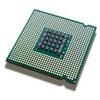Unbalanced optimal transport (UOT) has been widely used as a fundamental tool in many application domains, where it often dominates the application running time. While many researchers have proposed various optimizations for UOT, few have attempted to optimize it from a computer architecture's perspective. In this paper, we first study the performance bottlenecks of UOT through a series of experiments, which reveals that UOT is heavily memory-bound. Guided by these findings, we propose MAP-UOT, a Memory-efficient APproach to the implementation and optimization of UOT on CPU and GPU platforms. Our experimental evaluations show that the proposed strategy consistently and significantly outperforms the state-of-the-art (SOTA) implementations. Specifically, it provides single-threaded performance improvement over POT/COFFEE by up to 2.9X/2.4X, with an average of 1.9X/1.6X. At the same time, it provides parallelized performance improvement over POT/COFFEE by up to 2.4X/1.9X, with an average of 2.2X/1.8X, on Intel Core i9-12900K; and over POT by up to 3.5X, with an average of 1.6X, on Nvidia GeForce RTX 3090 Ti. MAP-UOT also shows great performance improvement on the Tianhe-1 supercomputer.
翻译:暂无翻译


